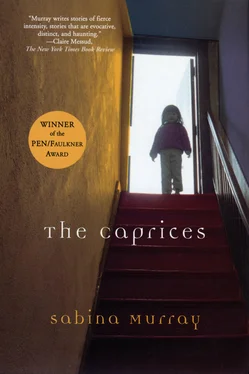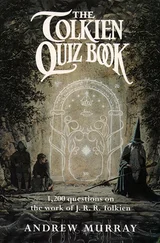Salas nodded. “Hanged. For war crimes.” And then he smiled. This was uncontrollable.
“There’s no doubt that he buried some gold up there,” continued his companion, “but how much? And why hasn’t it all been retrieved?”
“One hears rumors. .” Salas checked his audience. The man was deeply interested. “They say that all the locations are booby-trapped. Bombs will detonate if the precise directions for retrieval are not followed.”
“Well then, how do you get the gold?”
“There are maps — specific engineering instructions for the retrieval. These maps are still in the possession of the Japanese.”
“You don’t say.”
Salas nodded. “The maps are in an ancient Japanese dialect that has not been spoken for over a thousand years.”
“You don’t say.” The man smoothed his mustache. “Who did the work?”
“Work?”
“The digging.”
“Oh.” Salas grimaced, but quickly corrected his features. “POWs, I should think.”
“Wouldn’t they have spoken out?”
“Well yes, if they were alive. I’ve heard. .”
“Yes?”
“Well, nothing at all on that matter. Maybe they’re all dead.”
“All of them?”
“Yes.” Suddenly Salas felt weary. “But these are just rumors, of course. We know the Japanese looted all the way from Manchuria to Manila. No one will admit to having the money. Stories are created.”
“The money’s probably all back in Tokyo.”
“Or Switzerland. Who’s to say there’s any Yamashita’s Gold at all?”
“But if there was. ., ho ho ho,” said the man. He flipped the paper so that Salas could see the front page. There was a picture of an innocuous, bespectacled man.
“Who is that?” Salas asked.
“That is Roxas. He’s speaking at Plaza Miranda on Saturday, at the Liberal Proclamation Rally, along with everyone else who has a problem with the president.”
“He should keep quiet,” Salas said.
“You’re right. He won’t live long with an attitude like that, not under this administration. What good is gold when you’re dead?”
Salas took a taxi, smiling to himself as he passed the crowded jeepney stop. What he needed was a new nightclub to match his new affluence, not this dive that he had been frequenting for the past ten years. No doubt, when he actually brought forth the maps, he would be a rich man. Sixty thousand pesos was fine as a gesture of goodwill, but a small amount nonetheless. He would worry about lifestyle changes later. The old nightclub had a measure of comfort that he appreciated in his own way, and besides, who better to appreciate the new wealth than someone who had seen the old poverty? He would ask for Lina, who was near forty and practically in retirement, but she had known him longest and she would be the most impressed. In fact, it was his desire to impress Lina that caused him to abandon the taxi and proceed on foot up the alley that led to the rear entrance to the club. He would tap on Lina’s window. She would be confused at first, but then she would see — new suit, new shoes. .
Sneaking up on anyone is something that one should carefully consider. Sneaking up on a prostitute, even one near forty who is practically in retirement, is never a good idea, but Salas felt light and was therefore lightheaded. He walked up the side of the alley, with the tapping step of new soles. The shoulders of his suit were padded to make him look broad and strong, less stooped. How effective this actually was is not of importance, because Salas believed in his shoulders just as he believed in the faithfulness of the long-buried treasure. The gold was his, after all, had been his for twenty-eight years.
At first, Salas didn’t hear the other’s footfalls. The alley was deserted. His sobering thought was that his newfound prosperity had impressed someone else, someone who had followed him into the alley, which usually had a few inhabitants — tired women wringing out nylon hose, or their unwanted children busy in a coin-tossing game. Salas stopped behind a parked car, and as he’d predicted, the steps too stopped. In the reflection offered by the rear window of the car, he saw the outline of a man — tall and thin, and that was all because the light was poor and the window dirty. Slowly, he turned around.
Salas did not recognize the man because he did not want to. He registered that the man was unarmed and that he did not have a threatening demeanor. He wore loose trousers that had holes in the knees and were shredded at the cuffs. His shirt was filthy and the sleeves had been pulled from it. His eyes were quiet and questioning. He wore no shoes. At first Salas refused to recognize the man, but then he found his presence undeniable. This man was Dr. Santos, a civilian imprisoned in Fort Santiago whom Salas had known during the war.
Salas began to sweat, even though he felt suddenly cold. He forgot his errand, where he was. His mind folded in upon itself, and next thing he knew, he was stumbling into the chill of an expensive restaurant, having left the alley and run across a busy street. He was not damaged physically, although he had been narrowly missed by a number of cars and jeepneys. The waiter touched Salas’s elbow in a warm, yet polite way. He guided Salas to a chair.
“What has happened, sir?” asked the waiter.
Salas shook, unable to answer.
“Are you hurt?” The waiter gazed into Salas’s face. “Were you attacked?”
Salas nodded, although he knew this to be a lie. This was the closest he could come to describing the feeling he had, the terror that he had taken with him from the alley and into the restaurant.
“Shall I call the police?” The waiter knelt at Salas’s side and fanned him with a menu. Salas shook his head. How could he tell this man — or anyone — that he had seen a certain Dr. Santos, a man he had once met and seen one time afterward, whom he knew nothing of except that he was a skilled surgeon and that he was dead.
The waiter placed a drink in Salas’s shaking hands. He sipped it — a good scotch — and thanked the waiter for his solicitude.
“A gift, sir,” the waiter replied, “from Señor Ocampo. He would like for you to join him.”
Salas looked across the room. Señor Ocampo was the Spanish mestizo with whom he had chatted while having his shoes shined. The rest of the scotch was in a bottle on the table.
“I hear you were mugged,” said Ocampo. “It’s terrible, it is, but you know, this city, this country, has always been like this. It hasn’t gotten worse. A cesspool.”
“Then what they say about you mestizos is right,” replied Salas.
“And what is that?”
“Enough distance to see the problems in the Philippines and too much love for the country to ever leave.”
Ocampo laughed heartily. “My father was pure Spanish blood, third generation. His mother cried for a month when he said he was marrying a Filipina.” More hearty laughter followed. Ocampo poured Salas a generous glass. “I’m buying you dinner,” he said. “The thing to order here is lengua .”
Salas did not want to be alone and this Señor Ocampo was certainly good company. A few glasses of scotch had soothed Salas’s fear, although he still felt a nagging generalized wariness. Ocampo was in the sugar business. His wife and children lived on the island of Negros, in Bacolod, and while on business in Manila, Ocampo considered himself a bachelor.
“So what’s your story, Salas,” he said. “Who are your people?”
Salas laced his fingers together. He knew his history well.
“Mine is not a happy story,” he started. “I was born in Baguio in 1915. My father was a carpenter.”
“Same profession as Our Lord’s.”
Salas smiled. “Yes. There were eight of us children at one point. We had little money. There were only four of us still living at the start of the war.”
Читать дальше












